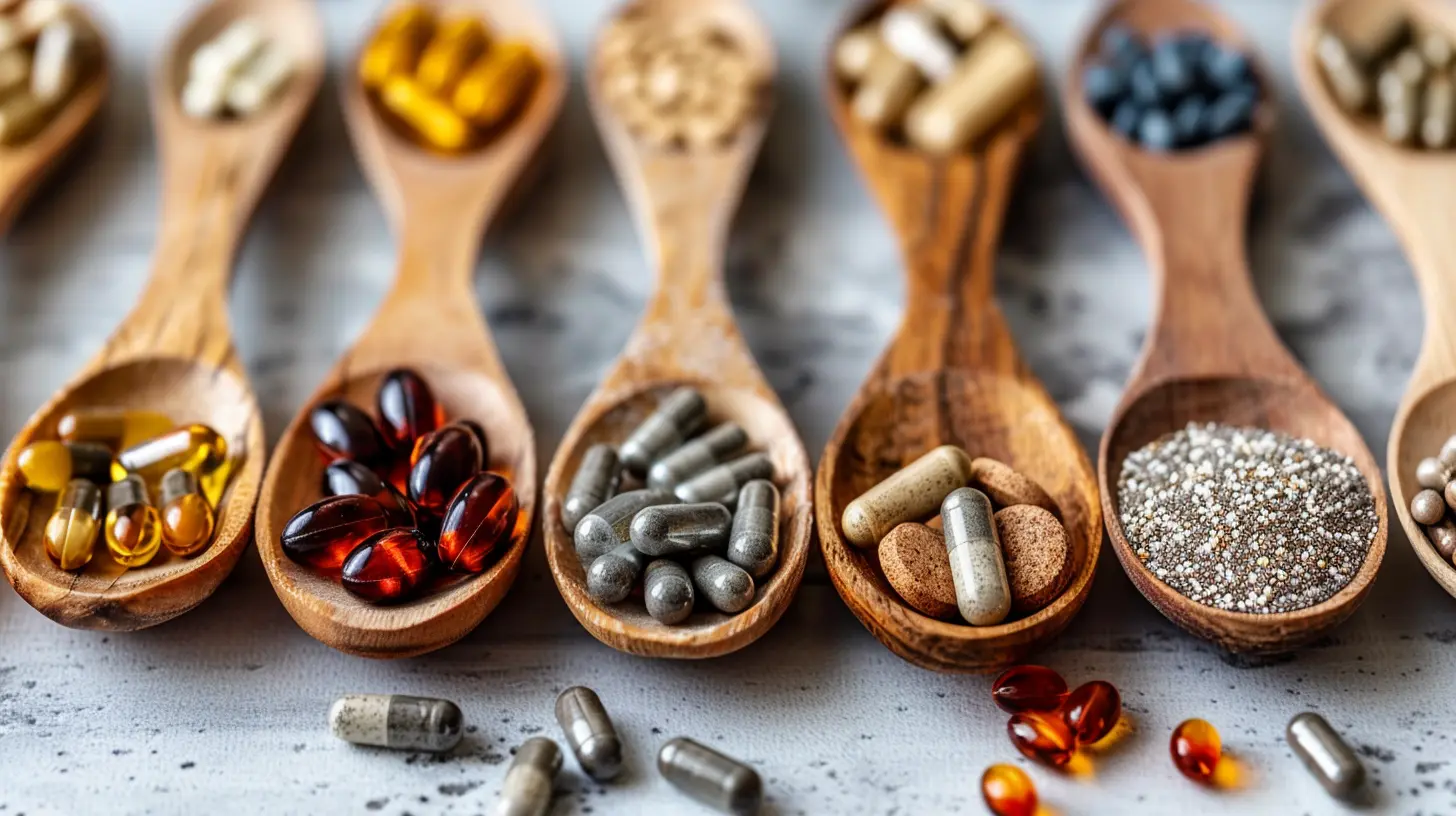The Best Supplements for Healthy Bones
25 October 2025
Let’s face it – we don’t usually think about our bones until something cracks, creaks, or snaps. But here's the truth: our skeleton needs a lot more love than we give it. Bone health might not be the trendiest wellness topic out there, but it's one of the most vital. Whether you're in your 20s or your 70s, keeping those bones strong is essential for staying mobile and independent.
So, how exactly do we support our skeletal sidekicks? One word – supplements.
With the right mix of nutrients, you can boost your bone strength, prevent conditions like osteoporosis, and stay active for the long haul. Let’s dive into the best supplements for healthy bones, why they work, and how to fit them into your daily routine.

Why Bone Health Matters (Even If You're Still Young)
First thing’s first – your bones are living, breathing (well, sort of) tissue that constantly breaks down and rebuilds. You hit peak bone mass in your late 20s to early 30s, and after that, it's a slow decline unless you take action. If you don’t give your bones the TLC they deserve, you’re increasing your risk of fractures, weaker spinal integrity, and mobility issues later in life.So don’t wait for a bone to break before you act. Think of bone health like saving for retirement – the earlier, the better.

What Do Bones Actually Need to Thrive?
Bones aren't just made of calcium. While that’s the poster child of bone nutrients, there’s a whole team of vitamins and minerals working behind the scenes. Here's what they need:- Calcium – the main building block
- Vitamin D – helps your body absorb calcium
- Magnesium – supports calcium metabolism
- Vitamin K2 – directs calcium to bones, not arteries
- Collagen – gives bones flexibility and structure
- Phosphorus, Zinc, and Boron – underrated helpers
With that in mind, let’s break down the best supplements to support healthy bones.
1. Calcium – The Bone Boss
Let’s start with the obvious. Calcium is the mineral that gives bones their density and strength. In fact, 99% of the calcium in your body is stored in your bones and teeth.How Much Do You Need?
Adults need around 1000 mg of calcium daily. Women over 50 and men over 70 should aim for 1200 mg, as the risk of bone loss increases with age.Best Forms to Take
- Calcium Citrate – easy on the stomach, better absorption- Calcium Carbonate – more calcium per pill, needs to be taken with food
Pro Tip:
Don’t overdo it! Too much calcium can lead to kidney stones or even increase the risk of heart disease if not balanced with the right co-nutrients.
2. Vitamin D – The Sunshine Vitamin
Even if you’re eating calcium-rich foods, not much of it will make it to your bones without Vitamin D. It’s like the traffic controller that helps calcium travel through your gut into your bloodstream.Why It’s Essential
Low vitamin D = poor calcium absorption = weaker bones. Simple math, right?How to Supplement
Most adults benefit from 1000 to 2000 IU daily, especially if you're not soaking up a lot of sun (sorry, desk jobs).Quick Tip:
Look for Vitamin D3 (cholecalciferol). It’s more potent and longer-lasting than D2.3. Magnesium – The Unsung Hero
Magnesium often stays in the shadow of calcium, but trust me – your bones need this mineral just as much.Why It Matters
Magnesium helps your body convert vitamin D into its active form, which then helps absorb calcium. And it also plays a role in forming bone crystals.How Much to Take
Most adults need around 300-400 mg of magnesium daily. Try magnesium glycinate or citrate for better absorption and fewer digestive issues.Fun Fact:
About 60% of your body’s magnesium is stored in bones!4. Vitamin K2 – The Traffic Cop for Calcium
While Vitamin K1 supports blood clotting, it’s Vitamin K2 that brings its A-game for bone health.What It Does
K2 activates proteins that help deposit calcium into your bones—and keep it out of places it shouldn’t be, like your arteries.K2 Forms to Look For
- MK-4 – fast-acting, but you need more of it- MK-7 – longer-lasting, only need a small dose daily
Recommended Dose
About 90-120 mcg daily is a solid place to start.5. Collagen – The Bone Glue
When you think collagen, you probably picture glowing skin and youthful joints, but did you know it's a major player in your bone matrix?Why It’s Important
Bones aren’t just rigid calcium rods. They have a flexible collagen framework that gives them resilience and reduces brittleness.Supplementing with Collagen
Look for hydrolyzed collagen peptides – they’re easier to digest and absorb. Aim for 10 grams a day, often found in powder form you can mix into your coffee or smoothie.Bonus Tip:
Pair collagen with Vitamin C – it helps your body produce more of it naturally.6. Boron – The Bone Booster
Boron might not be as famous, but it’s a powerful sidekick in bone health.What It Does
- Helps prevent calcium and magnesium loss- Supports the action of vitamin D
- May reduce inflammation that can weaken bones
How Much?
About 3-5 mg daily is enough. You usually won't find boron in a multivitamin, so grab a separate supplement if needed.7. Zinc – The Repairman
Bones undergo constant repair and renewal. Zinc plays a huge role in this regeneration process.Why It’s Important
Zinc activates enzymes that build bone and supports your immune system, which indirectly protects bones from inflammation.Dosing
Men need about 11 mg and women about 8 mg per day. Zinc supplements often come in the form of zinc gluconate or zinc picolinate for better absorption.8. Phosphorus – The Silent Partner
Phosphorus is the second most abundant mineral in bones after calcium. It pairs with calcium to form strong bone crystals.Do You Need a Supplement?
Probably not, unless you have a health condition. Most people get plenty through diet (think meat, dairy, nuts, and legumes).The Best All-In-One Bone Support Supplements
If your supplement routine is starting to look like a pharmacy aisle, don't worry. Many brands now offer all-in-one bone health formulas that combine calcium, magnesium, vitamin D, K2, boron, and sometimes collagen.What to Look For:
- Balanced calcium-to-magnesium ratio (around 2:1)- D3 + K2 combo
- Third-party tested (no sketchy fillers)
What About Natural Alternatives?
Not a fan of pills? You can also support your bones with bone broth, leafy greens, sardines, almonds, and - yes - soaking up a little sun. But even the best diet might fall short, especially as we age or deal with medical conditions.So while food is the foundation, supplements are a strong safety net.
Lifestyle Tips to Supercharge Your Bone Supplements
Taking supplements is just one piece of the puzzle. Here’s how to get the most bang for your (bone) buck:- Get Moving: Weight-bearing exercises like walking, dancing, and resistance training stimulate bone growth.
- Cut the Soda: High phosphate levels in soda can lower calcium in bones.
- Avoid Excess Caffeine and Alcohol: Both can deplete calcium and magnesium.
- Quit Smoking: Smoking reduces blood supply to bones and interferes with vitamin D absorption.
When to Talk to Your Doctor
Although bone supplements are generally safe, always check with your healthcare provider—especially if you're on medications, have kidney issues, or are dealing with osteoporosis.And if you’re wondering if your bones are in trouble, a DEXA scan can check your bone density – kind of like a report card for your skeleton!
The Bottom Line
Bone health isn’t just for your golden years – it’s a lifelong investment. By combining these top supplements with smart lifestyle choices, you’re giving yourself the foundation (literally!) to stay strong, agile, and independent for decades.So next time you’re filling your supplement cabinet, show your bones some love. After all, they’ve been carrying you your whole life. It’s time to return the favor.
all images in this post were generated using AI tools
Category:
Healthy BonesAuthor:

Laura Hudson
Discussion
rate this article
1 comments
Noora Sharpe
Great article! I appreciate the clear information on supplements for bone health. It’s a reminder of how important it is to nurture our bones. Thank you for sharing these valuable insights!
November 16, 2025 at 4:54 AM

Laura Hudson
Thank you for your kind words! I'm glad you found the information helpful. Nurturing our bones is indeed essential!


